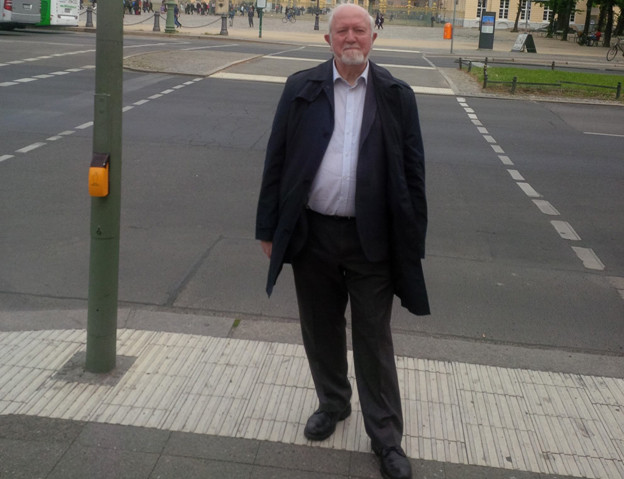
In memoriam: Richard Swigg (1938–2017)

This weekend we were contacted by Richard Swigg’s daughter, Virginia, who shared the very sad news that her father had passed away a few days earlier after suffering a stroke. PennSound codirector Charles Bernstein has penned a tribute to Swigg for Jacket2, which begins to encapsulate what his herculean efforts meant to us:
Richard Swigg was a great friend of PennSound, editing our extensive sound recording collections of Williams, Bunting, Tomlinson, Oppen, and Replanksky. His work was thorough, with the aim of archiving all the audio recordings of these poets. He was tireless in his efforts — he spent decades assembling the recordings — and worked with us in securing permission to make these recordings available on PennSound.
None of these author pages are modest by any means. The Williams page brings together more than thirty individual recordings, many of which include dozens of tracks each. The Tomlinson page includes a core collection of the poet reading his entire published output (653 poems!), which is supplemented by other recordings. Moreover, I think it’s noteworthy that Richard approached the work of Tomlinson and Replansky with the same tireless enthusiasm and respect that he afforded to titans like Williams and Oppen, and that his passion was contagious, benefiting us all greatly. As Charles notes, “Richard urged Al Filreis and I to visit one-hundred-year-old Naomi Replansky, whom he had recorded for PennSound. We did and that was a great experience for us.”
While his work as both a scholar and archivist of recorded poetry was central to PennSound, I’d also like to highlight the fine work he shared with us at Jacket2 over the past few years. As the editor who worked most closely with him — particularly on Paul Auster’s startling interview of the Oppens (which he toiled to uncover like a needle in the proverbial haystack, then transcribed from a poor-quality tape and edited for publication), and his mammoth collected correspondence between Oppen and Tomlinson (which is essentially a book-length manuscript) — I will miss our exchanges and everything I learned from chatting with him and reading his prose closely. As I told Virginia after hearing the terrible news, I’d been thinking of him recently (probably right around the time of his death) and getting ready to drop him a line to see what marvelous project he might be cooking up for us next. Certainly, the passing of such a generous and dedicated scholar leaves a void that’s very difficult to fill. All of us at both PennSound and Jacket2 share our condolences with Richard’s family, colleagues, and friends. — Michael S. Hennessey